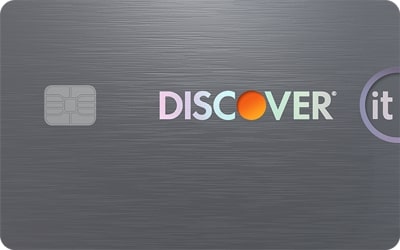Super.com Card: Secured Card With Rewards — If You’re a Member
The Bottom Line
3.3
The Super.com Card has appealing features, but given the necessary Super+ membership fee — which equals a staggering $180 a year — even credit beginners can do better.


Rates, fees and offers
Rates, fees and offers
Annual fee
$0
Rewards rate
1%-10%
Bonus offer
None
Intro APR
N/A
Ongoing APR
APR: No interest
Foreign transaction fee
0%
More details from Super.com
More details from Super.com
- Super+ is your go-to financial subscription to help you live the life you deserve. For $15 a month, Super+ members get these benefits:
- Access to apply for the Super Card with no credit check or interest
- Cash Advances up to $200 with no hidden fees
- Credit building on easy mode - reporting purchases to the big 3 credit bureaus
- Unlimited 1-10% cashback on everyday purchases
- Use your own money - just link your existing debit card and start spending to build credit and earn cashback
Pros and Cons
Pros
Earns rewards
No credit check required
Reports to the three major credit bureaus
Cons
Has monthly fee
No upgrade path
Detailed Review
The Super.com Card, issued by Republic Bank & Trust Co, joins a growing list of nontraditional credit cards with low barriers to entry: There's no credit check, and because it doesn't charge interest, you'll face little risk of getting into debt. It's technically a secured card, but instead of requiring a traditional upfront security deposit, your credit limit is equal to the amount of money in whatever bank account you link to the Super.com Card.
There's also, officially, no annual fee — but that doesn't mean it won't still cost you. That's because in order to apply for the Super.com Card, you'll have to join the Super+ program, which comes with a variety of perks like the ability to earn rewards with the card. But that membership costs $15 a month, or $180 a year. That's staggering, even for a credit card attainable by those with bad credit (FICO scores of 629 or lower). It's also at odds with the card's website, which prominently notes "no hidden fees."
In addition, it's worth keeping in mind that even though the card comes with guardrails that can keep you out of debt, that means it may leave you unprepared when you're ready to move up to a traditional unsecured credit card that will absolutely charge interest on outstanding balances. And as of now, the Super.com Card has no apparent upgrade path to a better product.
While any credit card can adjust its rewards, benefits and fee structure at any time, new cards from startup financial technology companies are particularly prone to significant changes as they find their place in the market. Indeed, this has already happened with the Super.com Card. (More on that below.)
Super.com Card: Basics
Card type: Secured and alternative.
Annual fee: $0, but you must be a Super+ member, which costs $15 a month and grants you access to rewards with the card (see below).
Sign-up bonus: None.
Security deposit: Your credit limit on the Super.com Card is equal to the amount of money in your linked bank account. If you have $1,000 in the linked bank account, you’ll be able to charge only $1,000 to the Super Card. The maximum credit limit is $5,000, however.
Rewards:
1% cash back on purchases is the card's normal ongoing rate.
10% cash back on Super.com hotel bookings
APR: No interest.
Foreign transaction fee: $0, but the Super.com Card only allows foreign transactions in Mexico and Canada.
Other benefits:
Reports to all three major credit bureaus.
Immediate access upon approval, via a virtual card. Once approved, you can link the Super.com Card to a bank account and then add the virtual card information to a digital wallet such as Apple Pay, Google Pay or Samsung Pay.
Benefits and Perks
No credit check required
The application process for the Super.com Card doesn’t involve a hard inquiry on your credit report, welcome news for those with bad credit (typically, FICO scores of 629 or below). That also means there’s no risk of temporary damage to your credit scores, which can happen due to hard credit pulls.
To get the Super.com Card, you must:
Have a Social Security number.
Be at least 18.
Have a bank account.
Rewards
The Super.com Card earns unlimited cash back in the following categories:
10% cash back on Super.com hotel bookings.
1% cash back on everything else.
Cash back doesn’t expire and can be redeemed at any time through the Super.com app or your online account. Cash back will be deposited into the bank account that you linked to the card.
'Just in Time' funding
The Super.com Card lets you secure your credit line in one of two basic ways, a unique feature among secured cards:
Manual funding, where you transfer money from a linked checking account to a Super deposit account. This can be done via ACH transfer, CashApp, PayPal, Venmo or debit card.
"Just in Time" funding, in which you can link a debit card to your Super deposit account. The debit account serves as a backup to the Super deposit account. If there isn’t enough money in the Super account to cover a purchase, Super will automatically process the payment through the linked debit account. Super secures the funds in the debit account and uses them to pay off the credit card balance when the monthly payment is due.
When autopay is enabled, your monthly credit card bill is paid automatically with funds from the Super deposit account.
Drawbacks and Considerations
$15-a-month membership fee
This monthly-fee model is a relatively new phenomenon among startups and fintechs that have introduced credit cards. And while it can offer predictability in terms of your monthly payments, it can also end up costing you far more than a traditional card that charges interest would, especially if you never carry a balance anyway. After all, you'll owe that $15 fee every single month, whether you're using the card or just sitting on it.
You do get some value back from a Super+ membership in the form of credit card rewards, no-fee cash advances up to $100, and discounts on gas at participating stations, among other perks. It's also worth pointing out that a membership fee is required if you want to get products like the Prime Visa from Amazon, or the Costco Anywhere Visa® Card by Citi.
But for reference, a normal Amazon membership costs only $139 annually, and you can get a Costco membership starting at a mere $65 a year.
No upgrade path
There’s no unsecured card within Super’s ecosystem that Super.com Cardholders can graduate to. Those who’ve raised their credit scores enough to qualify for an unsecured card will have to apply for another card from another issuer. Remember, many credit applications require hard credit pulls, which can temporarily lower your credit scores.
If you need to improve your credit but still want options once you've done so, consider a card like the Discover it® Secured Credit Card. Yes, you'll have to come up with a minimum $200 security deposit upfront, but the annual fee is $0, and it offers rewards — no troublesome monthly membership fee necessary. Plus, unlike the Super+ membership fee, your deposit is refundable when you close the account in good standing or, perhaps better yet, upgrade it to a traditional unsecured card from Discover. In fact, Discover will begin automatic monthly reviews once you've had the card for seven months to see whether you qualify for such a switch.
A credit limit cap
As mentioned earlier, your credit limit on the Super.com Card is equal to the amount of money in your linked bank account, meaning you can set your own credit limit (up to a point), but you can't overextend yourself.
However, Super caps credit limits at $5,000.
For a secured card with more spending power, consider the Varo Believe Secured Card, which has a maximum credit limit of $10,000.
Uncertainty around terms
While credit cards large and small can change terms and conditions over time, such changes tend to be much more frequent when it comes to alternative cards. Other products that bear similarities to the Super.com Card — such as the Tomo Credit Card and cards from Petal — have made changes to their fee structures and rewards, at least for some customers.
And indeed, the Super.com Card itself has already scaled back its rewards program. In 2022, the card earned 2% cash back on everyday purchases, but that rate has since been cut to 1%.
How To Decide If It's Right For You
The Super.com Card can help you build credit and potentially keep you out of debt trouble, and the ability to earn rewards is a nice touch.
But the required $15-a-month Super+ membership really puts a big damper on those qualities. Moreover, the card's training wheels may leave you ill-prepared to graduate to a traditional unsecured product, which isn't even possible within Super's portfolio.
Before you make a choice, consider starter credit cards or cards for poor credit from more established issuers.
Automatic credit line reviews after 7 months
The Discover it® Secured Credit Card earns rewards and comes with a bonus offer. You'll have to put down a refundable $200 security deposit to get the card, though.
Looking For Something Else?
Methodology
NerdWallet reviews credit cards with an eye toward both the quantitative and qualitative features of a card. Quantitative features are those that boil down to dollars and cents, such as fees, interest rates, rewards (including earning rates and redemption values) and the cash value of benefits and perks. Qualitative factors are those that affect how easy or difficult it is for a typical cardholder to get good value from the card. They include such things as the ease of application, simplicity of the rewards structure, the likelihood of using certain features, and whether a card is well-suited to everyday use or is best reserved for specific purchases. Our star ratings serve as a general gauge of how each card compares with others in its class, but star ratings are intended to be just one consideration when a consumer is choosing a credit card. Learn how NerdWallet rates credit cards.
About the author

Jae Bratton
Lead Writer & Content Strategist
